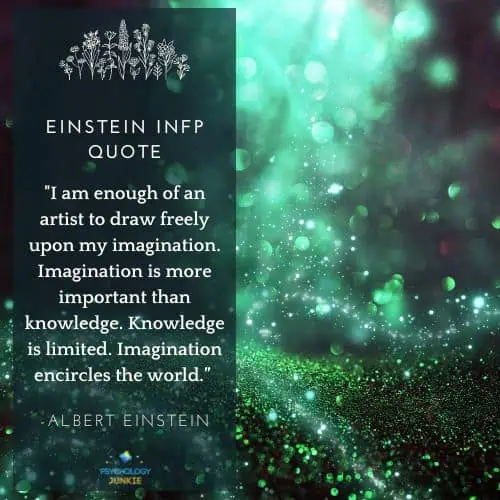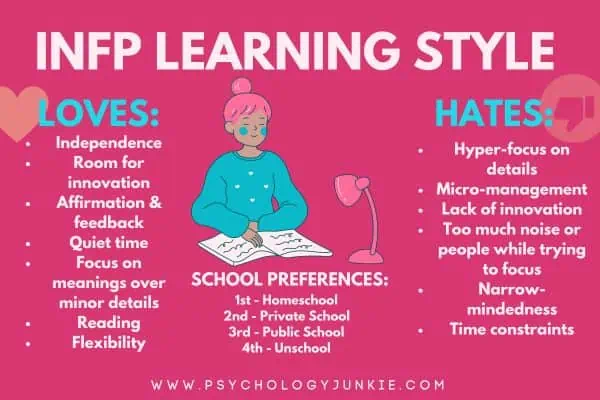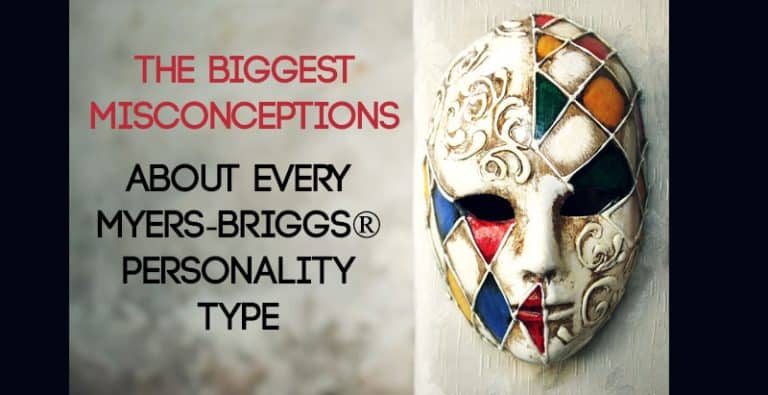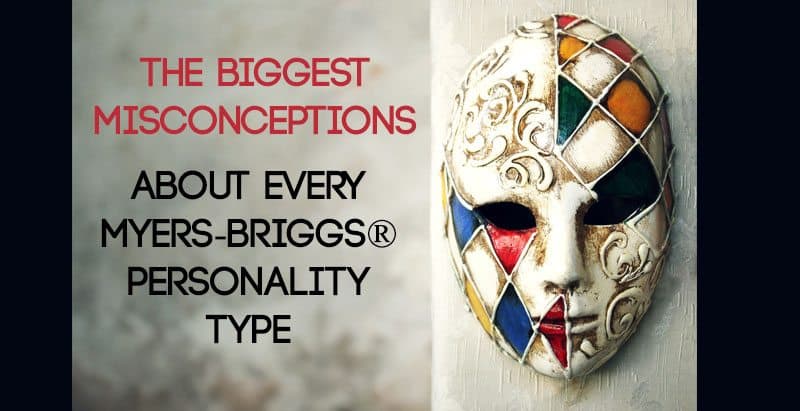Are INFPs Smart? A Look at INFP Intelligence
Okay, let’s be real. If you’re an INFP, you’ve probably spent an embarrassing amount of time wondering if you’re secretly a genius… or just really good at overthinking things to death. One minute, you’re making galaxy-brain connections between a 16th-century poem and the meaning of life, and the next, you’re standing in your kitchen, unable to remember why you opened the fridge.
So—are INFPs actually smart? Or are they just poetic space cadets with an uncanny ability to lose their phones while actively holding them?

The answer is a little complicated. INFPs don’t always fit into the traditional definition of intelligence—quick recall, detached logic, efficiency, all that left-brain jazz. Instead, they operate in a way that’s harder to quantify but no less powerful. They see layers where others see surface. They process emotions like forensic scientists. And when they care about something? Their minds turn into high-speed idea factories, piecing together insights, emotions, and metaphors in ways that make most people’s brains short-circuit.
Today, we’re breaking down the unique intelligence of the INFP personality type—their cognitive strengths, their learning style, and even how they stack up in standardized testing.
Let’s get into it.
Are INFPs Smart? A Look at INFP Intelligence
What Makes INFPs Intelligent?
First things first: INFPs have a very specific kind of intelligence—the kind that can sniff out emotional dishonesty from across the room but still somehow walk into walls while deep in thought. To be fair, not all INFPs bump into things right and left. But I’ve heard enough stories from frustrated INFPs to see a pattern (and I also struggle from this particular malady as well).
At their core, INFPs are meaning-makers. They don’t just process information; they dissect it, looking for emotional weight, hidden motivations, and existential significance. They don’t just read a book—they absorb it, let it marinate, and then spend six hours journaling about how it reshaped their entire worldview.
Here’s what makes their intelligence stand out:
They read between the lines. INFPs have an almost supernatural ability to pick up on what’s not being said. If someone’s words and tone don’t match, they notice. If a friend insists they’re “fine” but has that slight edge of tension in their voice, the INFP will quietly catalog it, knowing something deeper is going on.
They spot contradictions—especially in values. Tell an INFP that you’re all about honesty and then lie to someone in front of them? Congratulations, you’ve just lost their trust forever. Their brains naturally scan for incongruencies between what people say they believe and how they actually behave.
They see everything in metaphors. Ever heard an INFP try to explain something? It’s rarely straightforward. Instead, it’s: “It’s like when you’re on a road trip, and you miss your exit, and you’re suddenly questioning your whole life.” Their minds are wired to process ideas in abstract, symbolic ways, making them natural poets, storytellers, and deep thinkers.
They have an internal GPS for authenticity. You know how some people are easily fooled by charm, power, or a well-rehearsed sales pitch? Yeah. INFPs are not those people. They instinctively gravitate toward what feels real and true, and if something smells even remotely fake, they’re out.
They make connections other people don’t see. To an INFP, everything is part of a bigger picture. That’s why they can jump from talking about a random childhood memory to a full-blown philosophical debate in about 0.5 seconds. Their minds are constantly weaving ideas together, making them incredible at finding hidden patterns and alternative perspectives.
Now, does this mean INFPs are always using their intelligence productively? Absolutely not. These are the same people who can spend six hours researching medieval sword-making techniques because they got really into a book and needed to know everything about it. Their intelligence is deep, introspective, and sometimes impractical—but that doesn’t make it any less real.
INFPs and Abstract Thinking

If INFP intelligence had a tagline, it would probably be something like: “Big Picture Thinkers, Terrible at Remembering Where They Put Their Keys.”
INFPs don’t do well with small, tedious details. They don’t want to memorize a bunch of disconnected facts or follow rigid step-by-step instructions. They want to understand the why behind everything—the deeper meaning, the hidden connections, the grand cosmic significance of whatever they’re learning.
This is why INFPs are absolute masters of abstract thinking.
They live in the world of metaphor. As I mentioned before, INFPs rarely explain things in a straightforward way. Instead, they’ll say something like, “It’s like when you’re trying to hold sand, but the tighter you grip, the more it slips through your fingers.” They naturally translate emotions and ideas into imagery, which makes them brilliant at storytelling, writing, and creating emotionally rich content.
They notice hidden cause-and-effect relationships. Ever watch an INFP quietly observe a situation and then suddenly say something eerily insightful? That’s because they’re constantly picking up on subtle patterns—why things happen, how people react, what emotions are simmering beneath the surface.
They question everything. “But why?” is basically the unofficial INFP motto. Why do people act the way they do? Why do societal rules exist? Why do we accept certain traditions without questioning them? INFPs are wired to challenge assumptions and dig deeper, which makes them amazing philosophers, writers, and thought leaders (and also the worst people to argue with if you don’t like deep conversations).
They personalize the impersonal. INFPs don’t just learn facts—they internalize them. They have to connect to what they’re learning in a personal, emotional way, or it won’t stick. This is why they sometimes struggle in the classroom—rote memorization feels meaningless to them. But give them a subject that speaks to their values, and they’ll devour every book, article, and obscure Reddit thread they can find.
They can see multiple interpretations at once. If you ask an INFP for their opinion on something, be prepared for an answer that starts with, “Well, it depends…” They naturally see different angles, alternative perspectives, and deeper layers of meaning, which makes them great at finding creative solutions—but also makes decision-making a nightmare.
This abstract, conceptual way of thinking is why famous INFPs like William Shakespeare have left such a lasting impact. Shakespeare didn’t just write stories—he layered them with symbolism, universal themes, and deep psychological insight. That’s the INFP brain at work.
Now, does this make them practical, get-things-done types? Nope. But it does make them incredibly deep thinkers—people who see the world in ways others don’t.
3. How INFPs Learn Best

Alright, so we’ve established that INFPs are deep, conceptual thinkers who thrive on meaning and big-picture connections. But how does that translate into actual learning?
The short answer: they learn best when they care.
The long answer: they struggle with traditional education, but they’re powerhouse learners when given freedom, creativity, and a sense of purpose.
They are self-directed learners. If an INFP is interested in something, they don’t need a teacher—they’ll happily spend hours, days, or even years diving deep into the subject. They’ll read books, watch documentaries, join obscure online forums, and obsess over the topic like it’s their life’s mission. But if they don’t care about something? Good luck. No amount of lectures, threats, or deadlines will make them retain it.
They need to see the big picture first. INFPs don’t do well with step-by-step instruction unless they understand where it’s all leading. If you throw random facts at them with no context, their brain rejects them like a bad organ transplant. But if you give them the overarching why—why this information matters, how it connects to the bigger world—they’ll be hooked.
They rely on intuition more than rote memorization. Ask an INFP to memorize a bunch of unrelated facts, and they’ll struggle. But if they can see a pattern or attach an emotional meaning to it, they’ll remember it forever.
The teacher-student relationship matters. INFPs don’t just absorb information—they absorb energy. If they feel emotionally safe with a teacher, if they respect them and feel seen, they’ll learn so much more. If the teacher is cold, rigid, or dismissive? The INFP’s brain will mentally pack up and leave.
They learn in bursts of inspiration. INFPs don’t have a steady, consistent study rhythm. They have intense waves of curiosity followed by long periods of distraction. One minute, they’re researching ancient philosophy like a scholar possessed; the next, they’re lying on the floor listening to sad music, questioning the meaning of life. It’s all part of the process.
They excel in creative, conceptual subjects. Writing, philosophy, psychology, literature, foreign languages—these are INFP sweet spots. These subjects let them explore ideas, analyze human nature, and feel their way through learning. But force them into a rigid, numbers-heavy subject with no room for personal interpretation? Cue existential crisis.
And yet—despite their struggles with traditional school, INFPs actually perform shockingly well in standardized testing.
Wait… what?
Yep. INFPs rank among the top personality types in IQ, SAT scores, and verbal reasoning tests. Even though they often feel out of place in academic settings, the data says otherwise.
Let’s talk numbers.
How Do INFPs Rank in Intelligence Tests?
Alright, let’s get nerdy for a second. We’ve talked about how INFPs learn, how they think in metaphors, and how they mentally check out the moment something feels meaningless. But now it’s time for the real question: how do they actually rank on intelligence tests?
Well, according to the data, really freaking high.
- INFPs had the third-highest IQ scores of all 16 personality types (MBTI Manual, Third Edition, page 269).
- They had the second-highest SAT scores in liberal arts colleges. (Also the MBTI Manual, Third Edition, page 269).
- They received the highest verbal reasoning scores (MCAT-V) among medical students. (MBTI Manual, Third Edition, page 271).
- They also had some of the highest SAT scores among business students. (MBTI Manual, Third Edition, page 271)
Let’s pause on that last one for a second. Business students. You know, the realm of efficiency, structure, and practicality—things INFPs generally avoid like a cat avoids a bath. And yet, they crushed it in standardized testing.
Why? Because despite their reputation as dreamy idealists, INFPs are actually extremely sharp thinkers—especially when it comes to deep analysis, critical thinking, and verbal reasoning.
This also explains why they tend to excel in foreign language learning (Ehrman & Oxford, 1990). They don’t just memorize vocabulary; they absorb meaning, emotion, and context. They learn languages the way they learn everything else—by connecting the dots and internalizing the deeper significance.
INFPs and Creativity

Okay, now let’s talk about INFPs and their natural habitat—the world of creativity.
If you look at the hobbies and leisure activities INFPs naturally gravitate toward, a pattern emerges:
- Writing
- Reading
- Music
- Art appreciation
- More writing
- Probably crying while listening to music
- Getting emotionally attached to fictional characters and needing six business days to recover
INFPs are overrepresented in writing as a preferred leisure activity, and that makes total sense. Writing lets them explore their emotions, analyze life’s complexities, and express ideas without the awkwardness of, you know, actually talking to people.
But their creativity isn’t just about producing art—it’s about interpreting it. INFPs don’t just read a book or watch a movie; they deconstruct it. They analyze the subtext, the emotional beats, the themes. They find hidden layers of meaning that most people miss.
This is why music wrecks them. A song isn’t just a song—it’s an experience. A single lyric can spiral them into an existential crisis. A melody can feel like someone cracked open their soul and turned it into sound waves. INFPs don’t passively consume art; they live it.
And that’s a huge part of their intelligence. Their ability to feel deeply, to connect emotions with ideas, to make meaning out of everything. That’s not just creativity—it’s a rare and powerful form of cognitive depth.
6. Conclusion: Are INFPs Smart?
So, after all that, let’s answer the original question: Are INFPs smart?
Yes. Unquestionably.
But their intelligence doesn’t always look like traditional intelligence. They don’t always shine in structured environments. They may not dominate a debate or rattle off facts at lightning speed.
Instead, their intelligence is deep, reflective, and intuitive. It’s the ability to see patterns that others miss, to analyze human nature like a seasoned psychologist, to connect ideas across disciplines in a way that turns random thoughts into profound insights.
It’s the intelligence of meaning-makers, storytellers, philosophers, and artists.
And sure, maybe they’ll still forget to set their alarm clock. Maybe they’ll still get lost in their own thoughts and burn their toast. But intelligence isn’t about efficiency. It’s about depth. And INFPs have that in spades.
What Do You Think?
Are you an INFP? Do you relate to this? Tell me in the comments—how does your intelligence show up in your life?
Find out more in my eBook: The INFP – Understanding the Dreamer. It’s packed with information about the INFP brain, the INFP life (childhood through adulthood), relationships, and more!
Sources:
The MBTI® Manual: A Guide to the Development and Use of the Myers-Briggs Type Indicator® Instrument Third Edition by Isabel Briggs Myers, Mary H. McCaulley, Naomi L. Quenk, and Allen L. Hammer (CPP, Inc. 2009)
Looking at Type® and Learning Styles: Using Psychological Type to Make LEarning Personality Effective by Gordon Lawrence, Ph.D. (CAPT®, 1997)
Other Articles You Might Enjoy:
30 Iconic INFP Characters (or Ones They’ll Relate To)
INFPs and Their Compatibility with Every Myers-Briggs® Personality Type
Two Inspiring Morning Routines for INFPs
10 Famous INFPs Who Changed the World

















Everything relatable, except maybe speaking/thinking in metaphors. I’m not a poet though appreciate poetry (sometimes). Prefer epic prose that tickles my imagination and takes me to fantastic worlds beyond what the author intended. Otherwise, I am good in logic, precise wording end yes… writing – that’s what I’m told but it’s NOT my hobby. Also, quite efficient for an INFP – the only Te trait I can claim 🙂